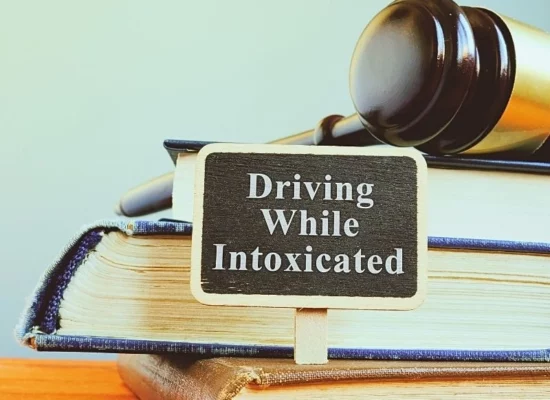Curbing the prevalence of DUI incidents holds paramount importance in ensuring road safety in Bloomington, IL. Understanding the nuances of DUI statistics in Illinois provides invaluable insights into the patterns and impacts of impaired driving. Delving into the timing, factors contributing to accidents, societal repercussions, and emotional toll reveals a comprehensive view of the challenges posed by DUI incidents.

DUI Statistics in Illinois
Intoxicated driving remains a concern across Illinois, posing substantial risks to public safety. Understanding the patterns and trends in DUI incidents is crucial in curbing this perilous behavior. By examining the timing of these occurrences, we gain insights into when and why such incidents peak, ultimately paving the way for informed precautions and enhanced safety measures. In Illinois, two critical aspects shed light on the frequency of DUI incidents: the time of year and the time of day. Understanding when most car accidents happen may help you protect yourself and your passengers.
What Time of Year Has the Most DUIs?
In Illinois, DUI statistics unveil a clear trend: certain times of the year see a spike in DUI incidents. The holiday season, encompassing Thanksgiving, Christmas, and New Year’s Eve, registers a substantial surge in DUI arrests. People tend to celebrate these festivities with alcohol, despite knowing what is the legal alcohol limit in Illinois. These festivities contribute to heightened risks on the roads. Between November and January, law enforcement agencies intensify DUI patrols to curb this trend and ensure road safety.
Moreover, summer months, particularly around Independence Day and Labor Day, witness an uptick in DUI cases. Warmer weather often leads to outdoor gatherings and increased alcohol consumption, leading to an escalation in DUI-related incidents with motor vehicles. If the accident took place on a boat you might wondere “when can you sue for a boat accident” Law enforcement agencies remain vigilant during these periods, implementing stringent measures to deter impaired driving.
Which Time of Day Has the Most DUIs?
Regarding the time of day, evenings and late nights are prime times for DUI occurrences in Illinois. Statistics reveal that most DUI arrests take place between 10 PM and 3 AM. These hours coincide with social activities, parties, and gatherings where alcohol consumption is prevalent.
Weekends, especially Friday and Saturday nights, witness a disproportionate number of DUI incidents. The combination of the end of the workweek and the inclination for socializing contributes significantly to increased alcohol consumption and subsequently higher DUI rates.
Law enforcement agencies often conduct sobriety checkpoints during these peak hours and weekends to detect and deter impaired driving. These checkpoints act as a preventive measure, aiming to reduce the number of DUI-related accidents and keep roadways safe for all.
Factors Contributing to DUI Accidents in Illinois
Understanding the intricate points of a personal injury case in DUI incidents involves delving into the underlying factors that contribute to these accidents. Illinois witnesses a confluence of various elements influencing the prevalence and nature of DUI incidents. Analyzing the demographics most susceptible to DUI accidents and the types of substances commonly involved is crucial in comprehending the complex landscape of impaired driving in the state.
Age Groups Most Susceptible to DUI Accidents
Analyzing DUI accident data in Illinois reveals distinct trends among different age groups. Young adults between the ages of 21 and 34 demonstrate a higher susceptibility to impaired driving. This demographic often engages in social activities that involve alcohol consumption, such as parties, gatherings, and nightlife events. The combination of youthful exuberance and a higher likelihood of risky behavior contributes to this age group’s elevated vulnerability to DUI accidents.
Surprisingly, older adults aged 45 to 54 also exhibit a concerning trend in DUI incidents. Factors such as stress, midlife crises, and increased disposable income might lead to heightened alcohol consumption and subsequent impaired driving behaviors in this age bracket. Thus, it’s crucial for individuals of all ages to recognize the risks associated with driving under the influence and take proactive measures to prevent such occurrences.
Types of Drugs Commonly Involved in DUI Accidents
While alcohol remains the primary substance associated with DUI accidents, Illinois has witnessed a rise in cases involving other drugs. Marijuana, both medicinal and recreational, ranks among the most prevalent drugs found in DUI-related incidents and vehicle fatalities. The legalization of recreational cannabis in Illinois has led to an increase in DUI arrests involving drivers under its influence.
Additionally, prescription medications and illegal drugs, including opioids and stimulants, contribute significantly to DUI accidents. The misuse or abuse of these substances can impair driving abilities, leading to hazardous situations on the roads.
Law enforcement agencies in Illinois have adapted their protocols to include the detection of drug impairment alongside alcohol. Advanced training and technology assist officers in identifying drivers under the influence of various substances, ensuring comprehensive enforcement of DUI laws.
Understanding the prevalence of different age groups involved in DUI incidents and the variety of substances contributing to impaired driving is pivotal. It underscores the necessity of education, enforcement, and preventive measures to combat DUI accidents effectively. Regardless of age or substance involved, the message remains clear: driving under the influence of any substance poses a severe risk to yourself and others on the road.
Impact of DUI Accidents on Society
The consequences of DUI accidents reverberate beyond individual tragedies, leaving an enduring mark on society as a whole. In Illinois, the fallout from these accidents encompasses both economic strains and profound emotional scars experienced by victims and their families. Examining the economic costs incurred, and the emotional toll inflicted, provides a holistic understanding of the far-reaching impact of DUI incidents. Understanding these facets sheds light on the urgent need for comprehensive measures to address and mitigate the repercussions of impaired driving in our communities.
Economic Costs of DUI Accidents in Illinois
The direct and indirect costs associated with DUI-related crashes encompass medical expenses, property damage, legal fees, and increased insurance premiums.
Emergency medical services, hospitalization, and rehabilitation for injured victims escalate the financial burden. Moreover, the judicial system incurs substantial costs in processing DUI cases, from law enforcement operations to court proceedings. Additionally, the loss of productivity due to injuries, disabilities, or fatalities in DUI accidents adds to the economic strain on society.
Emotional Toll on Victims and Their Families
Beyond the financial repercussions, DUI accidents inflict an immeasurable emotional toll on victims and their families. The devastation caused by injuries or the loss of a loved one due to a preventable accident is profound. Survivors often endure long-term physical and emotional trauma, impacting their quality of life and mental well-being.
Families of victims face emotional anguish, coping with the aftermath of a tragedy that could have been avoided. Grieving the loss of a loved one or witnessing their suffering due to injuries sustained in a DUI accident leaves an indelible mark, forever altering their lives.
The emotional distress, anguish, and trauma experienced by victims and their families cannot be quantified in monetary terms. While financial compensation can aid in addressing the practical aspects of recovery, the emotional scars persist, necessitating extensive support systems and counseling. Therefore, those who have experienced such situations may benefit from consulting with a car accident attorney.
Community Response and Preventive Measures
The impact of DUI accidents on society extends beyond immediate victims and their families; it prompts a collective response from communities and authorities in Bloomington, IL. Understanding the gravity of these incidents ignites proactive measures aimed at prevention and support.
Community engagement plays a pivotal role in addressing DUI-related challenges. Awareness campaigns, educational programs, and community initiatives foster a culture of responsibility and vigilance against impaired driving. Local organizations, law enforcement agencies, and advocacy groups collaborate to heighten awareness, educate residents, and discourage intoxicated driving behaviors.
Additionally, the legal system reinforces preventive measures through stringent enforcement of DUI laws. This includes regular DUI checkpoints, increased patrols during high-risk periods, and the implementation of stricter penalties for offenders. These efforts serve as deterrents and emphasize the zero-tolerance stance against impaired driving.
Support systems for victims and their families constitute another crucial aspect. Bloomington, IL, offers rehabilitation programs, counseling services, and victim support networks. These resources aim to aid victims in their physical and emotional recovery, assisting them in navigating the aftermath of DUI-related accidents.
Moreover, community involvement in advocating for legislative changes contributes significantly to DUI prevention. Engaging policymakers to enact stricter laws and enhance penalties for offenders remains a pivotal step toward fostering a safer environment.
Understanding the various facets of DUI incidents in Illinois is crucial for fostering safer roads and communities. Analyzing the timing, factors contributing to accidents, societal impacts, and emotional toll unveils the gravity of impaired driving. Whether it’s the peak times for DUIs or the economic and emotional fallout, every aspect underscores the need for proactive measures.
In Bloomington, Illinois, these insights are particularly pertinent. By acknowledging the complexities of DUI statistics in Illinois, you empower yourself to make informed decisions and promote responsible behavior.

